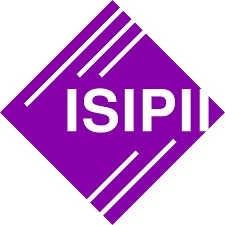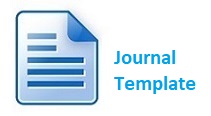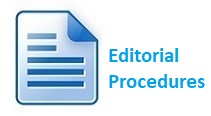Dokumentasi budaya Baso (tutur sapa kekeluargaan) etnis Pesisir Kota Sibolga, Sumatera Utara
Abstract
Indonesia has a diverse cultural heritage, including the Baso Culture in Coastal Sibolga, North Sumatra. This culture, orally passed down since ancient times, is at risk of being lost due to minimal documentation. Baso reflects close relationships, especially with blood relatives. The family system of the Sibolga Coastal ethnicity follows the paternal lineage, and Baso terms are adapted to the Coastal Language influenced by Minang, Malay, and Batak languages. This research aims to document the Baso Culture of the Sibolga Coastal ethnicity, which currently has minimal information. The study uses library science with a focus on cultural documentation. The methods employed are action research and Participatory Action Research (PAR), with data collection techniques including observation, interviews, and document analysis. The research involves observations to study social behavior and meaning, interviews to deepen information, and data analysis based on references to strengthen the received information. YFKK (Yayasan Forum Komunitas Kreatif) Sibolga Tapanuli Tengah and local cultural experts are involved in the research as part of the PAR approach. The results show that Baso Culture is a way of speaking that reflects the closeness of relationships and a person's position in kinship. The researchers categorized the variations of greetings in Baso into six categories: nuclear family, paternal family, maternal family, male in-laws, female in-laws, and general greetings. Baso Culture is still practiced by the Sibolga Coastal community, but it needs preservation. Preservation efforts are made by documenting it as Instagram content through the accounts of Yayasan Forum Komunitas Kreatif (@tutur.runduk) and the researcher (@lai_bookshelf). This documentation is expected to enrich information and support cultural learning for future generations.
Keywords
Full Text:
PDFReferences
Erwina, W. (2023). Diseminasi informasi budaya Kabupaten Ciamis Jawa Barat. Dharmakarya, 12(2), 212–216. https://doi.org/10.24198/dharmakarya.v12i2.38044
Fatkhah, U., Winoto, Y., & Khadijah, U. L. S. (2020). Diseminasi informasi zero waste oleh Yayasan Pengembangan Biosains dan Bioteknologi. Jurnal Kajian Informasi & Perpustakaan, 8(1), 49–68. https://doi.org/10.24198/jkip.v8i1.26615
Kiswahni, A. (2022). Peran masyarakat majemuk dalam melestarikan keanekaragaman budaya di Indonesia. De Cive: Jurnal Penelitian Pendidikan Pancasila Dan Kewarganegaraan, 2(6), 235–243. https://doi.org/10.56393/decive.v2i6.1670
Kusnandar, K., Erwina, W., & CMS, S. (2020). Dokumentasi budaya: Inventarisasi dan perekaman warisan budaya tak benda. Bandung: RANESS Media Rancage.
Marbun, S. (2019). Kamus Bahasa Pesisir Sibolga Tapanuli Tengah. Kendal: Ahsyara Media Indonesia.
Mitroshin, I. A. (2022). Promoting websites of scientific libraries. Scientific and Technical Libraries, (10), 115–129. https://doi.org/10.33186/1027-3689-2022-10-115-129
Pasaribu, S. (2011). Adat dan budaya masyarakat pesisir Tapanuli Tengah / Sibolga. Medan: Badan Perpustakaan, Arsip, dan Dokumentasi Provinsi Sumatera Utara.
Pasaribu, S. (2014). Bunga rampai Pesisir Kota Sibolga. Sibolga: Pemerintah Kota Sibolga.
Safrillah, & Simanihuruk, M. (2016). Keserasian sosial dalam masyarakat “Berbilang Kaum” di Kota Sibolga. Perspektik Psikologi, 4(1), 31–41.
Sehat, N., Tumanggor, Y. R., & Fadilla, T. (2021). Adat Sumando: Tradisi meminang masyarakat Pesisir Barus, Tapanuli Tengah. MUKADIMAH: Jurnal Pendidikan, Sejarah, Dan Ilmu-Ilmu Sosial, 5(1), 46–53. https://doi.org/10.30743/mkd.v5i1.3430
Stringer, E. T. (2014). Action research. Los Angeles: SAGE Publication.
Sugiyono, S., & Lestari, P. (2021). Metode penelitian komunikasi (Kuantitatif, kualitatif, dan cara mudah menulis artikel pada jurnal internasional). Bandung: Alfabeta.
Susanti, H., Ali, I. taufik, Prayuda, R., Hendrias, Alief Rizki ZidhaneAfrian, F., Rakha, M., & Yanti, E. (2024). Workshop penggunaan sistem informasi kesehatan (siketan) berbasis teknologi digital untuk peningkatan keakuratan laporan bulanan (lb1) di angka Puskesmas Benteng. Jurnal IKRA-ITH ABDIMAS, 8(2), 56–61. https://doi.org/10.37817/ikra-ithabdimas.v8i2.3135
Suyadi, A., & Berdiati, I. (2020). Menggagas penelitian tindakan kelas bagi guru. Bandung: Remaja Rosdakarya.
Wiriaatmadja, R. (2014). Metode penelitian tindakan kelas. Bandung: Remaja Rosdakarya.
DOI: https://doi.org/10.24198/inf.v4i2.49248
Refbacks
- There are currently no refbacks.
Copyright (c) 2024 Author

This work is licensed under a Creative Commons Attribution-ShareAlike 4.0 International License.
Informatio Indexed by:
Editorial Office :
Library and Information Science Study Program, Building 3 Floor 2, Faculty of Communication Science, Universitas Padjadjaran
Jl. Raya Bandung Sumedang Km. 21 Jatinangor, Sumedang 45363
Principal Contact :
Phone : 08122184219
Email : rully.khairul@unpad.ac.id

 ,
,




2.png)


